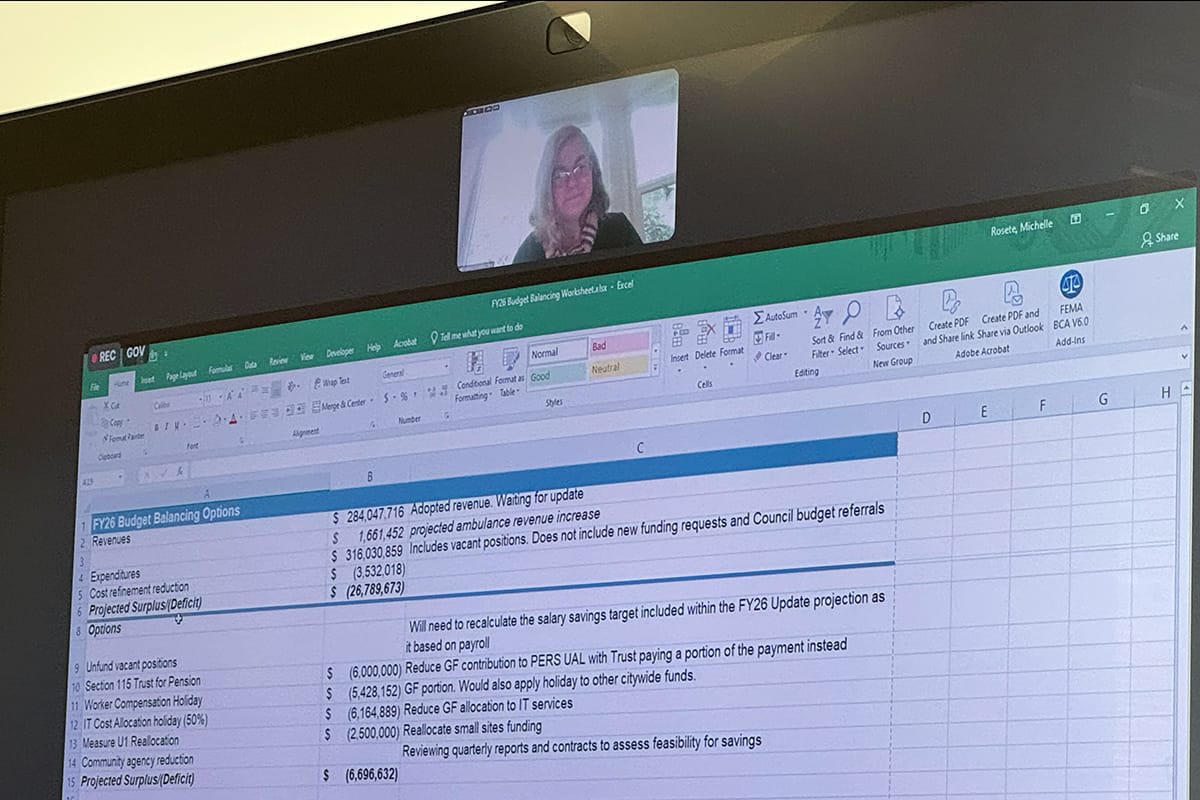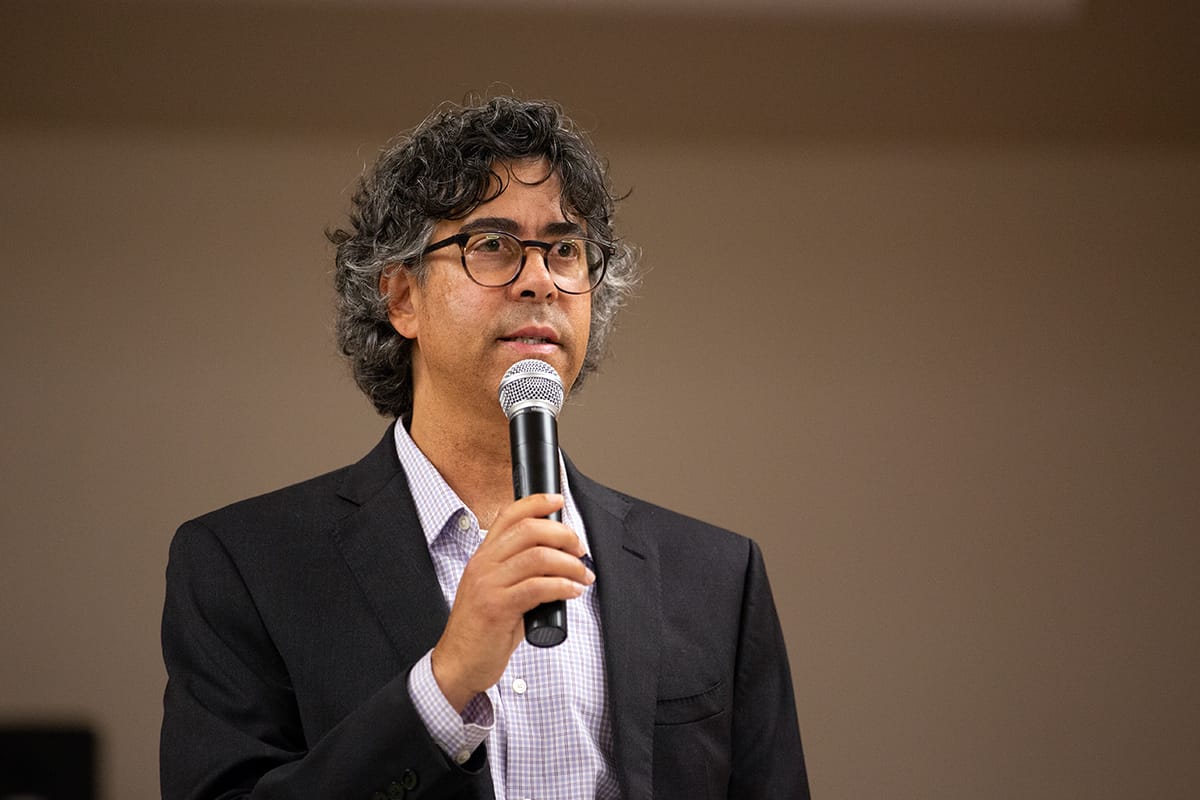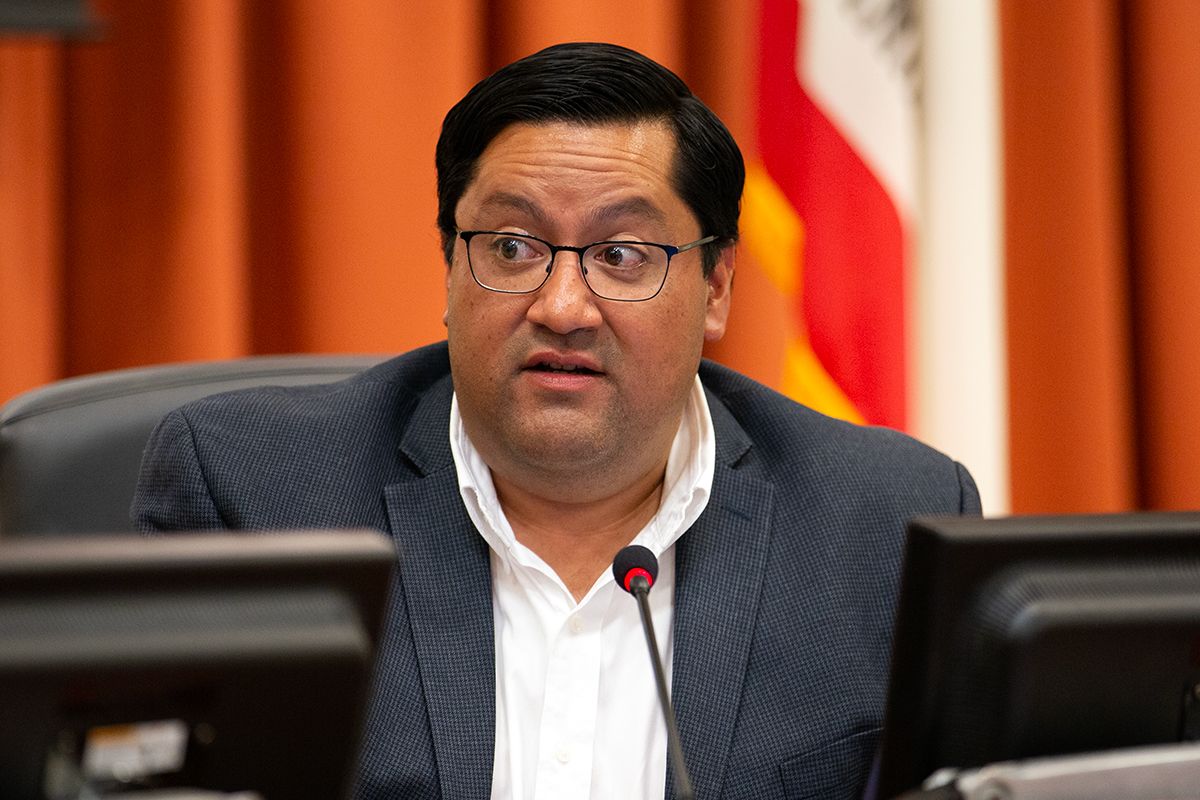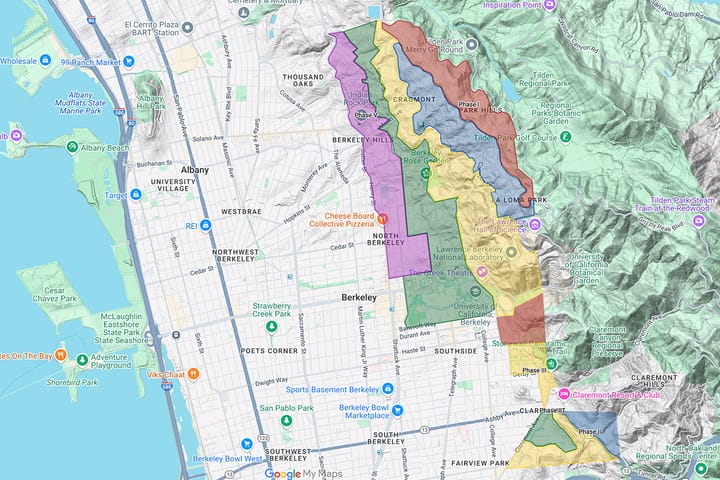With $27M deficit looming, Berkeley adopts hiring freeze
On Thursday, Mayor Ishii lauded the city's focus on systemic change, saying, "We can't continue to use one-time measures to solve these problems."

Faced with a $27 million general fund deficit in the coming fiscal year, the city of Berkeley has suspended most hiring through mid-2026.
On Thursday, city officials received a sobering report about the budget and the new hiring freeze, which went into effect this week.
The meeting, of the City Council's Budget & Finance policy committee, marked the official kickoff to Berkeley's budget season, which runs through June 30.
Between now and then, Berkeley City Council members will have a series of public meetings and then vote on what steps to take to tackle the budget gap.
On Thursday, Berkeley budget manager Sharon Friedrichsen suggested several possible balancing strategies, from a worker compensation holiday to borrowing from the city's pension trust fund to continued salary savings through vacancies.

Friedrichsen also suggested taking a closer look at the city's upcoming Measure U1 allocations, related to affordable housing projects, to review whether any of them might be reconsidered in light of current fiscal conditions.
Staff said Berkeley may also be able to save money by curtailing IT spending and shifting Specialized Care Unit costs to Alameda County; reviewing the money the city gives to community agencies, particularly in light of performance; and taking another look at some of the projects planned for the coming fiscal year, among other ideas.
In her public remarks Thursday, budget chair Rashi Kesarwani, who serves on the committee along with Mayor Adena Ishii and Councilman Brent Blackaby, described the budget report as "a lot to take in."
" Berkeley isn't the only city in a very difficult budget," she said. "We're seeing similar headlines from San Francisco and LA. Obviously Oakland. This is a difficult time and a time of economic and fiscal uncertainty with federal actions or threats."
Blackaby said he wanted to make it "crystal clear" to the public what services community members will continue to get, such as miles of streets paved and response times for police, to help set their expectations.
"Even with the reduced goals," he said, "what are the departments actually gonna be providing?"
Mayor Ishii said she appreciated staff's emphasis on finding longer-term solutions to create a more stable budget in the years ahead.
"We can't continue to use one-time measures to solve these problems," the mayor said. "We need to be making real systemic changes."
Berkeley now has a hiring freeze

Berkeley's new hiring freeze came up repeatedly during Thursday's meeting.
City Manager Paul Buddenhagen had announced it Friday in an email to staff. The new policy went into effect Monday.
Under the freeze, for the most part, no new city positions can be posted and conditional job offers can be rescinded.
The policy does allow for exceptions — including jobs related to mandated and essential services such as public health and safety — which will be considered on a case-by-case basis.
"The limited exceptions will focus on preserving critical organizational functions to protect the general welfare and safety of our constituents and employees, compliance, risk exposure, revenue generation, and alternative funding sources," according to the guidelines.
In his email, Buddenhagen wrote that the city's senior leadership team had decided to suspend hiring in the face of projected deficits in several key areas: Berkeley's general fund — used for daily operations — as well as its marina, camps and parking meter funds, all of which had relied on "one-time resources that are no longer available."
"This action is meant to immediately slow down deficit spending as we work hard to thoughtfully address the budget challenges in these uncertain times," Buddenhagen wrote, due to shifting "federal resources, a challenging economic environment, and the prospects of a recession."
In the email, he said the hiring freeze had not been an easy call to make, particularly as some Berkeley departments already have high vacancies, which has taken a toll on staff.
"We are often working hard to serve the community with limited resources," he wrote, "and I recognize this hiring freeze exacerbates these challenges."
While the freeze is in place, the city intends to focus on "essential functions" and take a closer look at structural deficits, where expenses outpace revenues, to put city finances "on a long-term sustainable path."
On Thursday, Buddenhagen told officials he wanted to be very careful in relation to public safety hiring, particularly as far as police officers and public safety dispatchers, given the city's years-long battle to address ongoing vacancies.
"We have made… quite a lot of headway in getting this machine moving towards hiring people," he said. "We want to be really mindful of … just not shutting it down. Because it takes a long time to start it back up and get that process going."
Under the new policy, Berkeley plans to reassess the hiring freeze "once a list of vacant positions for FY 25-26 [through June 2026] has been determined."
Also worth noting: The hiring freeze only covers staff "under the purview of the City Manager."
It does not affect charter offices, such as the city attorney's office, auditor, Office of the Director of Police Accountability and the offices of the mayor and City Council.
What comes next for the Berkeley city budget?
The city operates on a two-year budget cycle and has already adopted a projected budget for FY26, which runs from July 1, 2025, through June 30, 2026.
But, as per the normal budget process, officials are now reviewing the numbers and refining the budget for the upcoming fiscal year.
In the coming weeks and months, the Berkeley City Council is expected to take a closer look at the projected salary savings through vacancies while the hiring freeze is in place and vote on one-time measures to address the deficit.
The budget committee's next meeting is set for May 15 with a full City Council meeting on the budget set for May 20.
City of Berkeley budget snapshot
Berkeley's overall adopted budget for FY26 has roughly $700 million in projected revenues and $830 million in expenses, according to recent documents.
Of that, general fund revenue is expected to be about $280 million with expenses estimated at $310 million.
"As in prior fiscal years, revenues are not keeping up with expenditures citywide," staff wrote. "Options include increasing revenue, using depleted fund balance/reserves and/or reducing expenses."
Nearly 70% of general fund expenses are due to personnel costs, the city said.
The police and fire departments make up about half of the general fund costs.
In Thursday's report, staff attributed much of the increase in general fund expenses to pension plan and salary-related costs, including increased wages from labor agreements.
See Thursday's budget presentation and the full budget committee agenda. Read more about the city of Berkeley budget.
Related coverage








